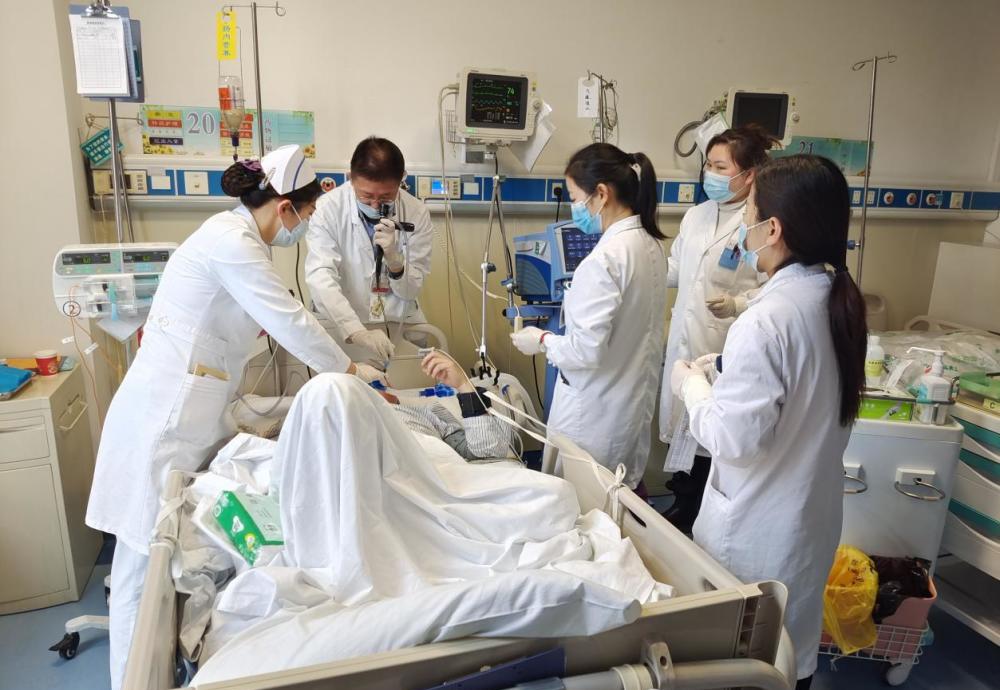"These 14 days are like a ghost door, thanks to all the medical staff of the Respiratory Medicine Department of the Third Hospital of the Military University for their meticulous treatment, nursing and companionship!" Mr. Huang's face showed a smile and made a gesture of victory. Mr. Huang, 63 years old, a local master transporting supplies in Shanghai, came to the emergency department of The Anting Branch of the Third Affiliated Hospital of the Naval Military Medical University (Oriental Hepatobiliary Surgery Hospital) at about 23:00 on January 20 for sudden left chest pain and breathing difficulties.
According to the hospital, the emergency department of the hospital conducted various examinations for Mr. Huang, indicating that he may have severe respiratory failure. Chen Jiquan, director of the respiratory medicine department of the hospital, after understanding the situation, resolutely admitted Mr. Huang to the treatment room, when he had respiratory distress and high fever.
At first, the doctors of the Department of Respiratory Medicine took various treatments, but Mr. Huang's condition did not improve, the respiratory distress was progressively aggravated, and even the chest X-ray on January 23 suggested a severe infection, and the so-called "white lung" appeared, and the condition was critical. Clinically, although this situation has been actively treated clinically, the mortality rate is still as high as more than 80%.

Medical staff do bedside tracheoscopy for patients The pictures in this article are provided by the Third Affiliated Hospital of the Naval Military Medical University
With the consent of the family, Chen Jiquan immediately performed tracheal intubation, tracheoscopic suction, invasive ventilator treatment, adjusted ventilator parameters, and strengthened various symptomatic supportive treatments for the patient under endoscopic guidance.
Since then, the medical staff of the Department of Respiratory Medicine has continuously adjusted the treatment plan in a timely manner and carefully cared for it. On the afternoon of January 26, the patient developed a left pleural effusion, and Chen Jiquan, with the cooperation of ultrasound department and department medical staff, completed the puncture and drainage operation at the bedside with high difficulty and high risk. The turnaround came on the evening of January 26, when Mr. Huang's condition gradually improved. Although his situation has been up and down since then, the medical team has overcome the problems one by one. Subsequent repeated chest x-ray examinations suggested that Mr. Huang's lung inflammation improved and his condition gradually stabilized.
On February 5, through the efforts of all the medical staff of the Respiratory Medicine Department of the hospital, after careful evaluation, Mr. Huang removed the endotracheal intubation, removed the ventilator and gave oxygen at 18:42 on the same day after 14 days of endotracheal intubation and mechanical ventilation. At present, the patient's vital signs are stable and the monitoring indicators are normal.
"Our hospital is not only for the service of the troops, but also for the people." In the face of the gratitude of patients and their families, Chen Jiquan, director of the respiratory medicine department of the hospital, said.